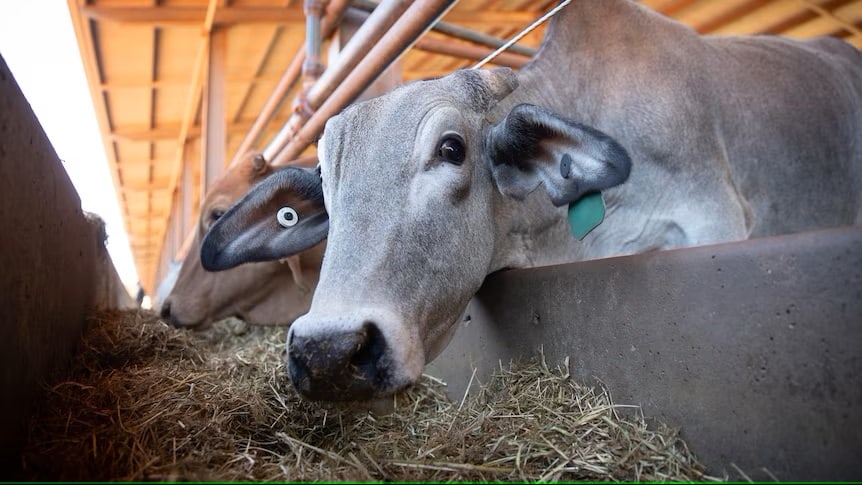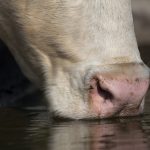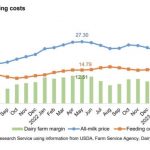
Cattle producers in northern Australia are facing a nervous wait, as authorities scramble to test animals for lumpy skin disease (LSD) to reassure Indonesian authorities it is not in the country.
Key points:
- Indonesia says 13 imported Australian cattle have lumpy skin disease
- Australian authorities are testing four suspended live export facilities
- One cattle yard near Darwin is holding about 3,000 cattle
Late on Sunday, Indonesia suspended four Australian export facilities from sending livestock to the country, after claims 13 cattle were found to have LSD.
Australian biosecurity officers are now testing cattle in the suspended facilities — which are spread across the Northern Territory, northern Western Australia and north Queensland — upon the request of Indonesian authorities.
One of the suspended facilities near Darwin is holding about 3,000 head of cattle, the ABC understands.
The cattle are allowed to be moved and sold to other markets, but the industry has decided to keep them for the time being, to satisfy a request from Indonesia.
NT Cattlemen’s Association chief executive Will Evans said “what we’re going through right now is going to hurt some people and its going to cost a fair bit of money”.
“But in the grand scheme of things, its important to go through this with the highest level of efficacy possible to reopen those facilities as soon as possible,” he said.
“When Indonesia asks you a question, you answer it, and you’ve got to be responsive to their concerns.”
If LSD was found in Australia, all exports of live cattle, meat and dairy would be halted, potentially costing the economy more than $7 billion in a year.
Dispute over when cattle contracted LSD
Australian authorities maintain the cattle contracted the insect-spread disease after arriving in Indonesia, given it has been spreading throughout the country since March 2022.
But in a press conference on Tuesday, Indonesia’s head of Agricultural Quarantine, Bambang — who goes by one name only — said the cattle could have come into Indonesia with LSD.
“The journey from Australia took about a week at most. With the 28-day incubation period, we really believe [the LSD] could potentially have originated there,” Bambang said, according to Reuters.
Results from testing at the suspended Australian facilities is expected by the end of this week.
NT Agribusiness Minister Paul Kirby and NT Cattlemen’s Association president David Connolly are meeting with federal Agriculture Minister Murray Watt and chief vet Mark Schipp this afternoon.
Mr Kirby said “a range of testing” had occurred in the NT this week and he was hopeful the trade with Indonesia could return to normal soon.
“We’re extremely hopeful those two export facilities [currently banned from sending stock to Indonesia] will be up and running very shortly,” he said.
“There’s a range of testing going on… and we’re confident that we don’t need to reach any further out than [testing cattle at the yards], because we know we’ll be able to prove from those export yards that there were no incidents and no cattle that were infected.”
The live export trade is still continuing, with cattle leaving Darwin Port on the Bison Express, bound for the Philippines on Wednesday.
Another 24 live export facilities around the country maintain their ability to trade with Indonesia.





















